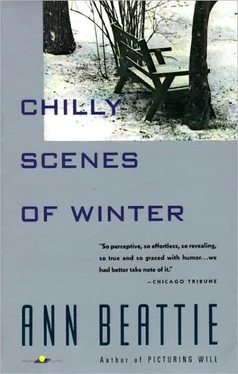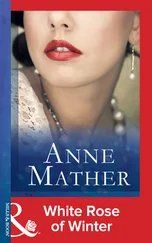Ann Beattie - Chilly Scenes of Winter
Здесь есть возможность читать онлайн «Ann Beattie - Chilly Scenes of Winter» весь текст электронной книги совершенно бесплатно (целиком полную версию без сокращений). В некоторых случаях можно слушать аудио, скачать через торрент в формате fb2 и присутствует краткое содержание. Год выпуска: 1991, Издательство: Vintage, Жанр: Современная проза, на английском языке. Описание произведения, (предисловие) а так же отзывы посетителей доступны на портале библиотеки ЛибКат.
- Название:Chilly Scenes of Winter
- Автор:
- Издательство:Vintage
- Жанр:
- Год:1991
- ISBN:нет данных
- Рейтинг книги:5 / 5. Голосов: 1
-
Избранное:Добавить в избранное
- Отзывы:
-
Ваша оценка:
- 100
- 1
- 2
- 3
- 4
- 5
Chilly Scenes of Winter: краткое содержание, описание и аннотация
Предлагаем к чтению аннотацию, описание, краткое содержание или предисловие (зависит от того, что написал сам автор книги «Chilly Scenes of Winter»). Если вы не нашли необходимую информацию о книге — напишите в комментариях, мы постараемся отыскать её.
Chilly Scenes of Winter — читать онлайн бесплатно полную книгу (весь текст) целиком
Ниже представлен текст книги, разбитый по страницам. Система сохранения места последней прочитанной страницы, позволяет с удобством читать онлайн бесплатно книгу «Chilly Scenes of Winter», без необходимости каждый раз заново искать на чём Вы остановились. Поставьте закладку, и сможете в любой момент перейти на страницу, на которой закончили чтение.
Интервал:
Закладка:
“I was in California. I got back just a couple of days ago. I called you last night.”
“You were in spiritual trouble last night too.”
Twenty-four hours of spiritual trouble. More or less.
“Was I ever. I’ve been out in Mendocino, working in a canning factory.”
“That sounds like a drag.”
“The whole California thing — I thought it would be wild, but there’s no way to get money in California. I got a ride out with a dyke who ditched me in a bar in San Francisco. She crawled out a toilet window. Women are no better than men. Women are worse. You should have seen the beasts I worked with in the canning factory.”
“Yeah. That sounds awful.”
“I mean, there were some nice things about California. When you order a sandwich out there they bring you fresh fruit with it instead of potato chips. You order a roast beef sandwich, you’re likely to get half a peach and a strawberry. In some ways it’s very civilized. I don’t think I’ll ever eat junk food again.”
He thinks of Laura’s nourishing dinner. The tacos are now sitting in his stomach with the mashed potatoes. That last quarter inch of beer was revolting.
“Yoko Ono was in Mendocino. Not in the canning factory. But around.”
(“… I think John should stay in the U.S.A., because he’s a groovy musician.…”) “Yoko,” he says.
“It’s quitsville for John and Yoko, and believe me, with a woman like that I don’t blame him. Women are yecch. It took me a long time to realize that.”
Silence.
“But how are you? How are you, Charles?”
(“… What have you got?” …)
“I’m fine,” he says. “I’ve been running around a lot over the holidays and I’m pretty wiped out.…”
He hopes to avoid being asked either to go out or to have her come over.
“I was wondering if I could come over?”
“Sure,” he says.
“Good. I can be there in about an hour.”
“Good.”
Good. He can take a shower. Brace himself. He hangs up, goes into the bathroom and runs the water. He takes his clothes off and looks at himself in the medicine cabinet mirror. Stubble. A double chin? No — he was looking down. His hair is dirty. Why bother to wash it for Pamela Smith? But it has to be washed before work tomorrow. Okay, okay. He drapes his clothes over the toilet seat and gets in the shower.
“I’m singing’ in the tub, just singin’ in the tub, a glorious feeling, I’m showering again …”
He learned that song from Sam. Sam does it complete with twirls and kicks. Charles is sure he’s going to fall in the bathtub and break his legs. Charles holds on to the soap dish and gives a kick. Sam is crazy.
He gets out of the shower in time to answer the phone. It is cold in the kitchen. He jumps off the floor, jogs in place to stop his feet from freezing. “Yeah?” he says. “Hello?”
“Hello, my boy. How are things with you tonight?”
“Hi, Pete. I’ll call you back. Just got out of the shower.”
“You do that, then,” Pete says.
They did not talk long enough for Charles to be able to tell if Pete was drunk. Shivering, Charles goes into the bedroom and throws his towel over a floor lamp he never uses. He puts on a pair of gray socks, a pair of corduroy pants, and a blue button-down shirt. Over that he pulls a sweater with an antelope standing on top of a mountain. He bought the sweater because he thought it was funny: a very realistically knitted antelope on top of a pointed brown mound. Very stark, very ugly. “Hello, little fellow,” the salesman writing up the sale said, stroking the antelope. Charles has not liked the sweater since then, rarely puts it on. He tried to give it to the dog, but she was only interested in sleeping on it once.
He looks around him. His room has looked just the same since the day he moved in. His mother used to have winter and summer bedspreads, winter and summer curtains. When he lived at home, his winter bedspread had been a yellow and brown plaid, a cheap, itchy bedspread that he didn’t like to sit on. The summer bedspread was beige and green crinkle crepe with a large dust ruffle. He had said that he wasn’t having a bedspread with any damn ruffle. She had said that it was a “dust ruffle,” as though that excused it. He had threatened to cut it off. His father had been sent to his room. His father said that it was a bedspread in good taste, one that he wouldn’t mind having on his own bed. “Then take the thing!” Charles had shouted. His father nodded. He removed the bedspread and carried it into the master bedroom, took the bedspread off their double bed and handed it to Charles. Charles was embarrassed; he felt as if he was holding a jar of tonsils, or the blown-off head of a friend. He held the big bedspread reverently. He watched his father put the single bedspread on the double bed. Of course it did not fit. It looked silly. “Do you want me to have this bedspread on my bed?” his father asked. Charles quickly gave him back his own bedspread, left in defeat and humiliation, trailing his green and beige bedspread with him. He put it back on his bed. “I didn’t think you’d want my room to look like that,” his father said, passing his room. His father never fought with him. He played dumb, as he did with the bedspread exchange, or explained patiently (which his mother was incapable of) why something had to be a certain way. Most logical men live a long time, but Charles’s father dropped dead at thirty-nine. He would have been logical in his old age, but there was no old age.
Charles stands in the doorway of his room, thinking about how the room could be changed. Instead of being against the wall, the desk could be moved against the window. And the bed could be moved from the back wall to the side wall. There would be a little more space in the room that way. He no longer even questions that the room must be changed. He takes the things off the top of his bureau and puts them on the bed, shoves the bureau where his desk used to be, at the same time shoving the desk into the middle of the room. A lamp falls over, does not break. He stands it upright on the floor. He moves the dresser into place. He puts all the things back on top, shoved together: a picture of his mother and father on their first anniversary, a picture of him holding Susan when she was an infant (he can still remember his mother arranging the baby in his arms; he had thrust her forward, his arms straight out, so that she blocked his face in the lens, and his mother had rushed to him and crooked his arm and lowered her into it), a glass bowl with pennies, a hairbrush, a dirty ascot that got dirty not from wear but from dust settling on it over a two-year period, a dried-up philodendron, a fountain pen and bottle of ink, several magazines, and a flashlight. He pushes the desk across the rug. Maybe now that it faces the window he will enjoy sitting at it more. What will he ever use it for? He could figure out the bills there. He won’t. He could do what his mother always did with useless pieces of furniture — put a tablecloth over it He does not own a tablecloth. Maybe a sheet. No, that would look silly, to have a desk with a sheet over it. Everybody would know it was a desk. Sam would demand an explanation. Moving the bed is a bigger problem. He pushes hard, bunching the rug underneath the bed. He lifts the bottom of the bed and pushes the rug with his foot. He hopes that he does not get a hernia. There was a boy in the sixth grade who had a hernia that had to be operated on. The class sent him a card. Nobody knew what message to write, so almost everybody wrote: “I am sorry you have a hernia. See you soon.” Some people asked how the food was. One girl refused to sign the card. She told the teacher that her mother would write a note saying she didn’t have to. The teacher said that it wasn’t necessary.
Читать дальшеИнтервал:
Закладка:
Похожие книги на «Chilly Scenes of Winter»
Представляем Вашему вниманию похожие книги на «Chilly Scenes of Winter» списком для выбора. Мы отобрали схожую по названию и смыслу литературу в надежде предоставить читателям больше вариантов отыскать новые, интересные, ещё непрочитанные произведения.
Обсуждение, отзывы о книге «Chilly Scenes of Winter» и просто собственные мнения читателей. Оставьте ваши комментарии, напишите, что Вы думаете о произведении, его смысле или главных героях. Укажите что конкретно понравилось, а что нет, и почему Вы так считаете.












